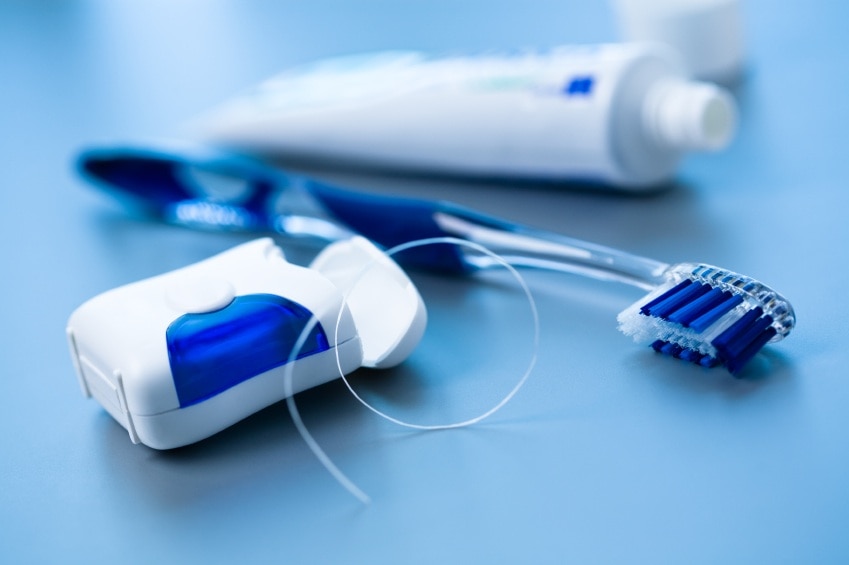Moms: Take Care of YOUR Teeth, Too
By Dan Driscoll, DDS, Enlighten Dental Care
If you are anything like my wife, you are probably diligent about getting your children to the dentist twice a year, reminding them to brush and floss, and helping them to avoid the dental dangers of soda and sticky sweets. But are you following your own advice? (And on that note, when was the last time your husband saw the dentist?)
The fact is: Moms (and Dads) are busy people and sometimes neglect to take care of their own teeth. Maybe you’ve missed a dental appointment for your child’s class party and forgotten to reschedule. Maybe you’re hesitant to go, fearing that an expensive — or unnecessary — treatment will be recommended. Or maybe, you just don’t like having your gums prodded and poked. Whatever the reason, your dental health is more important than you might think.
Moms Take Note: If you have a question about your dental health (or your husband’s), be sure to leave a comment below for Dr. Driscoll. He and his team will be checking in periodically to answer your questions!
Poor oral health is linked to a diseases and conditions such as heart disease, premature and low birth weight babies, osteoporosis and even Alzheimer’s disease. The fact is: You don’t need a lot of gimmicks to take care of the teeth you have. A toothbrush, some floss and a plan to not overindulge in certain types of foods or drinks will keep your smile going strong.
 A bit about brushing …
A bit about brushing …
– Brush your teeth at least twice a day and after each meal if possible.
– Use an appropriate sized adult toothbrush with soft, nylon bristles and round ends — not medium or hard bristles. Other than that, it doesn’t matter if your toothbrush is electric or manual — the electric are just more fun! And apply the appropriate amount of force to clean the teeth because too much force can actually damage your teeth.
– Brush longer. You are probably brushing for less than a minute. On average, most adults brush for 42 seconds. Try a stopwatch to keep you brushing for the right amount of time — two to three minutes.
– Change your toothbrush every three to four months — before the bristles become splayed or frayed.
– Place the toothbrush at a 45-degree angle and rub back and forth gently in a circular motion on the outside of teeth, the inside of teeth, the chewing surfaces between teeth and the tongue.
– As long as your toothpaste contains fluoride, it does not matter what brand you use. The fluoride makes the tooth structure more resistant to decay and promotes remineralization.
Flossing
– Would it surprise you to know that only 12 percent of Americans floss daily, according to the American Dental Association? Probably not, because chances are you’re in the other 88 percent. But really, flossing is your single most important weapon against plaque, so don’t neglect it!
– Waxed or unwaxed, flavored or unflavored…it doesn’t really matter what type of floss you use.
– Floss at least once a day for two to three minutes.
– Water picks are often recommended for people with gum disease, but they should not be used as a substitute for flossing.
Mouth Rinses
– Therapeutic mouth rinses may be beneficial, particularly if you have early gum disease.
– Listerine is a mouth rinse that is approved by the American Dental Association and has been clinically proven to fight the bacteria that cause cavities.
– Take the proper amount of liquid as specified on the container into your mouth. With lips closed and teeth slightly apart, swish the liquid around with as much force as possible using the tongue for about 30 seconds. Then rinse the liquid from your mouth thoroughly.

Foods
Watch what you eat. Not-so-friendly foods for teeth include…
– Carbonated sodas that contain sugar are bad for teeth, and the diet sodas are, too! All carbonated soft drinks contain tooth-eroding acids, such as phosphoric and citric.
– Sticky sweets, such as caramels, cling to tooth surfaces and crevices.
– Long-lasting sweets, such as lollipops, keep sugar in the mouth too long.
– Dried fruits, such as raisins, have highly concentrated sugar and non-soluble cellulose fiber, which can bind and trap sugars on and around the tooth.
– Starchy foods…breads, potatoes, chips…can become wedged in teeth and start converting to sugars immediately.
– Citrus fruits…lemons, oranges, grapefruits…contain citric acid. Eat them quickly and rinse the mouth out with water afterward.
In addition to taking care of your teeth at home, regular check-ups and professional cleanings are an important part of protecting your oral health. At Enlighten Dental Care, we provide answers to your dental questions, so you can make the best choices for you.
Questions about this story or a dental problem you’re having? Submit them below, and the team at Enlighten Dental will be happy to answer!
 Sponsored by Enlighten Dental Care
Sponsored by Enlighten Dental Care
Enlighten Dental Care is a relationship-based practice started by Dr. Lee Salisbury and Dr. Dan Driscoll located at 1551 Westbrook Plaza Drive, Suite 203, Winston-Salem, NC 27103. Phone: (336) 765-0904. And please follow Enlighten Dental on Facebook for the latest in dental news, tips and updates.
